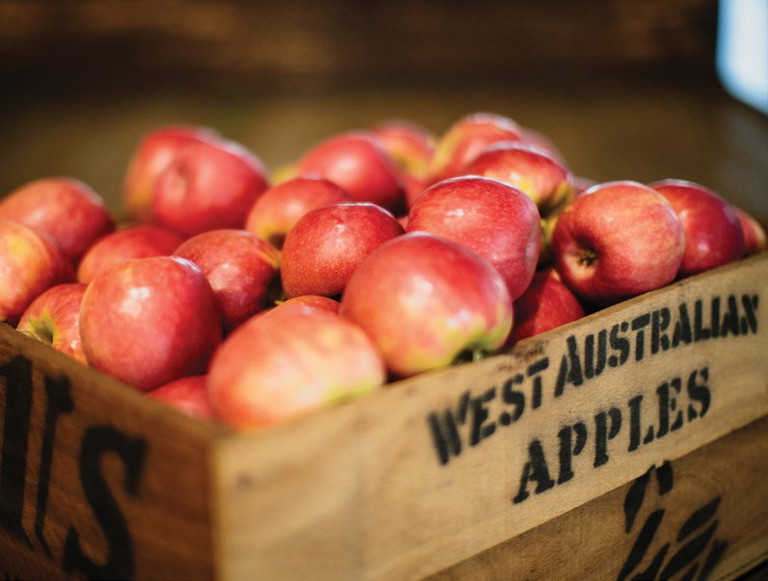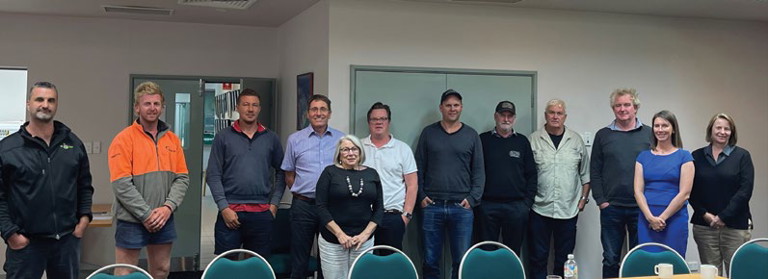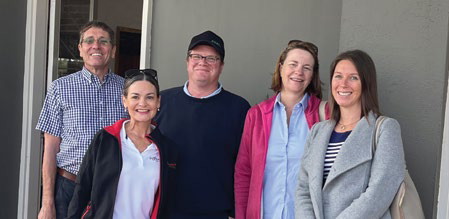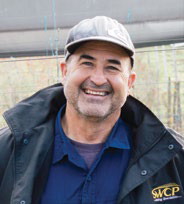Leading the WA industry to take a fresh look at exports
BY NARDIA STACY EXECUTIVE MANAGER, POMEWEST


Boosting exports is a key priority in reducing industry risk but will require industry to shift from a ‘reactive price taker’ into a ‘proactive market maker’.
Progressing the recent consultative process of developing our new Strategic Plan, the Pome Industry’s Number 1 objective is to lift Class 1 packouts and raise spend for apples and pears per household, per year.
In addition, the second phase is to build a strategy to enable the export of 15 per cent of Western Australian (WA) annual apple production within five years.
It is the view of many that the expansion of markets will continue the growth and protection of the sector for future generations.
It is not for everybody; however, it is crucial for orcharding businesses who are invested in future growth.
Export can be lonely journey, so a collective industry approach may be the solution to share the benefits and manage risk.
This may be achieved by bringing together a group of like minded individuals willing to open the door again.
This industry has a rich history of export success, especially in premium markets, so the timing could be right for a re-launch, particularly if there was an avenue to capitalise and celebrate our past achievements. We can’t forget the fact that WA is home to two unique and exciting apples that continue to attract high demand and present so many opportunities for our local growers.
A strategy to enable the export of 15% of WA annual apple production within five years.
There are risks to consider: our continued reliance on the domestic market with the ongoing threat of imports, and oversupply resulting from increased production with improve practises, planting more trees and varieties. The reality may be that there’s not enough room for so much choice, which could result in more consumer confusion.
To start the ball rolling, Pomewest facilitated a two-day event on March 23 and 24 in Manjimup, to bring a select group of interested parties together to engage in some frank and robust discussion.
Pomewest lead the activity by engaging APAL export manager Justin Smith, APAL head of trade Jenny Van De Meeberg and Marketing Licensee for Pink Lady ® apples Peter Richardson, to present before the discussion.
The event started with a workshop, which started with a SWOT analysis of the reasons why and why not, highlighting the obvious opportunities and threats.
It was suggested that if collaboration was the answer, there were real advantages to developing a platform of trust between businesses, underpinned by a working policy of transparency, commitment and collaboration. This would be essential component for an industry led approach.
APAL’s Jenny Van De Meeberg then presented a comprehensive presentation covering a big picture synopsis for the future global trade and mega trends, current Australian export programs, summary of opportunities and threats, and an overview of the ‘Technical Market Access Strategy’, particularly looking at Japan and Taiwan.

EXPORT workshop participants.
Benefits to looking at a collaborative export approach recognised.
This was followed by practical advice of how to run an export business:
• Developing a strategy
• Regulatory considerations
• Commercial considerations
• Where to go for further assistance.
The next component of the workshop was to have an open discussion about the current situation, outlining the advantages of developing a state export working group, a coalition of willing participants to build an export program.
This resulted in most of the participants recognising the fact that exporting needs to be prioritised and there were benefits to looking at a collaborative approach in order to progress.
APAL kindly invited the participants to a dinner after the workshop, to continue discussions, network and build trust within the group to develop and suggest ideas.
The next day, the APAL visited the participants to get some true reflections of the previous day and to collate this valuable feedback.
The service provider team (Pomewest and APAL) continued to brainstorm and explore some opportunities while APAL were in town.
The positive outcomes of this exercise were that a group of industry businesses came together, as industry leaders, and understood the need to be ahead of the game before being forced to find new markets to survive.

L–R: Peter Richardson, Nardia Stacy, Justin Smith, Susie Murphy White and Jenny Van De Meeberg.
Hence, the understanding of the power of market diversity, commitment to supply, growing varieties that appeal, and finding markets that are viable.
We still have a way to go in putting a plan together, however, we have taken the first steps to re-engage WA industry consideration and buy in.
The next steps are to build on the momentum and present back to the group a viable proposition and path for success.
MORE INFORMATION
Pomewest acknowledges the support of APAL to make this event become a reality, particularly since it was tricky planning travel during these uncertain times, with restrictions of the pandemic.
If anyone would like to access any information about exporting, please go to this link https://apal.org.au/programs/ export-readiness-market-access/ on the APAL website. This project is overseen and managed by APAL and funded by Hort Innovation using the apple and pear R&D Levy.
Justin Smith at jsmith@apal.com.au or Nardia Stacy at nardia@pomewest.net.au, 0411 138 103 or go to pomewest.com.

New Strategic Investment Panel member
We congratulate Terry Martella of Santa Rita Orchards on his recent appointment as industry representative for Hort Innovation’s Strategic Investment Panel for the for the Apple and Pear Research and Development Fund.
We look forward to working with Terry to progress and improve productivity and profitability for pome growers with initiatives funded by the National Levy system.